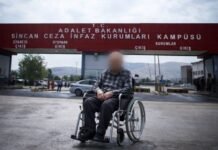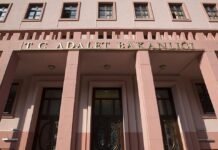A number of public servants who were dismissed from their jobs in the aftermath of a July 15, 2016 coup attempt in Turkey and were subsequently reinstated by a government commission are unable to start work due to security investigations, the Duvar news website reported.
Following the failed coup the Turkish government declared a state of emergency and carried out a massive purge of state institutions under the pretext of an anti-coup fight.
More than 130,000 civil servants were summarily removed from their jobs for alleged membership in or relationships with “terrorist organizations” by emergency decree-laws subject to neither judicial nor parliamentary scrutiny.
According to the Law on the State of Emergency (OHAL) Commission, the appointment procedures for those reinstated to service must be carried out by the relevant institutions within 30 days. However, this period has been extended for a number of purge victims because of the security investigations.
The OHAL Commission was set up to examine complaints from individuals who were adversely affected by the government decree-laws during the two-year state of emergency. The operations of the commission, which was initially established in the summer of 2017 for a period of two years and whose term was then extended several times by presidential decrees, will be terminated in its sixth year on Jan. 22.
Victims of the decree-laws, who are at risk of not being able to return to their jobs after the security investigations, said this unclear process is difficult and psychologically exhausting for them and their families.
Education and Science Union President Nejla Kurul said there are many purge victims who are experiencing this and that they are not informed about the process. “We are facing a double punishment. We demand that our colleagues who have been reinstated start work immediately,” Kurul said.
Turkey’s former public servants were not only fired from their jobs after the attempted coup in 2016; they were also prohibited from working again in the public sector and getting a passport. The government also made it difficult for them to work formally in the private sector. Notes were put on the social security database about dismissed public servants to deter potential employers.
According to a joint report by the Justice for Victims Platform and Ömer Faruk Gergerlioğlu, an MP from the pro-Kurdish Peoples’ Democratic Party (HDP) and a prominent defender of human rights, the two-year-long state of emergency declared after the failed putsch caused immense suffering among public servants who were dismissed from their jobs by the government as well as their families.















